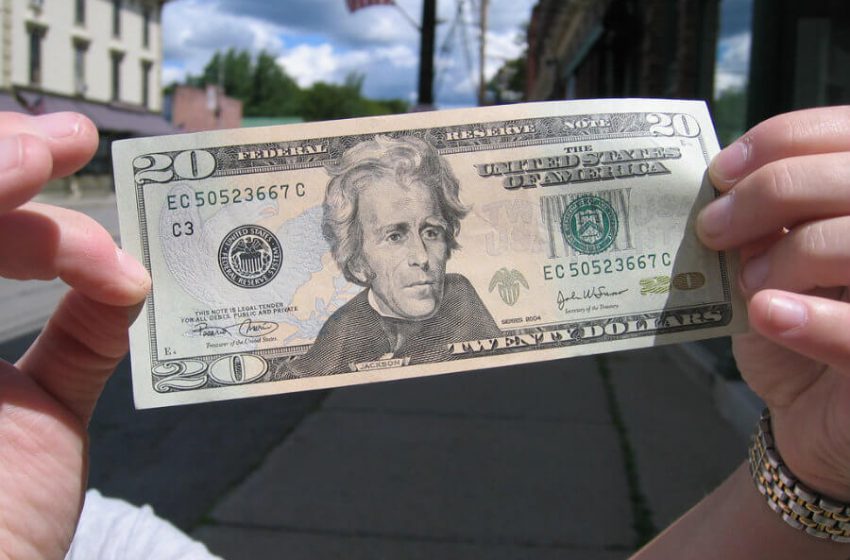Three causes there gained't be considered a 2021 housing industry crash

Save To have an Emergency Fund vs. Pay Off Credit Card Debt: What's the Right Move? – Credit Sesame

The “emergency fund” is the one of the most confusing ideas in personal finance, because it means different things with respect to the guru you speak with. For many people, it is a contingency fund, to cover car repairs or last-minute babysitting needs. But those aren't emergencies — cars just break up sometimes and babies sometimes need sitting! When you should certainly save money to cover those expenses, I don't believe that the word “emergency” is doing any work there.
In my view, an urgent situation fund is for covering really exceptional situations, like eviction from an apartment, loss of a job, or a temporary disability. In those situations, you will need immediate access to cash in order to cover your expenses while you get your financial situation back on track.
Quick Tip: Whenever you assess your funds — saving vs. paying down your credit cards, it’s important to look at your credit rating, just in case you’d prefer to consolidate a number of your debt into a low-interest credit card or remove an unsecured loan. Call at your free credit rating on Credit Sesame.
And that raises the question: if you are carrying high-interest charge card balances month-to-month, should you prioritize reducing those balances or adding to an urgent situation fund in case of sudden financial hardship?
Credit card rates of interest will always be higher than a savings account
If you're carrying high-interest credit card balances while saving cash within an account paying almost nothing in interest, the reassurance you're buying is expensive. Very costly.
Say you have a $10,000 balance on the charge card with an annual percentage rate (APR) of 15 percent. With $3,333 in monthly expenses, you follow the widely acknowledged personal finance advice of saving three months’ worth of expenses (the same $10,000) within an online checking account (such as Ally Bank or Radius), which pays around 1 % APY per year.
The reassurance you get from your emergency fund is costing you $1,400 per year — this is actually the 14-percentage-point distinction between the 15 percent charge card interest along with a 1 percent rate of interest in an online bank. And that money isn't going to pay down your financial troubles — consider it the total amount you're paying your credit card company to “keep the balance” in your charge cards every month.
The move should make: Repay your charge card balance and, in line with the example, you will have $1,400 per year in extra cash to cushion your money.
Think of paying off credit debt among the best investments you are able to make
If a stock broker called you offering a hot new investment with a guaranteed 15 percent annual rate of return, you'd think he was a con artist (and you would be right). In today's rate of interest environment, if you're willing to secure your money for 5 years inside a certificate of deposit, you might be in a position to earn 2 percent each year in your savings.
But there really is an investment you may make with a 15 % annual return: simply paying down your high-interest credit debt! Every dollar of principle you pay off will earn you 15 cents in appeal to you would have otherwise paid towards the bank.
The a key point here's that when you are making credit cards payment, you're not “spending” your savings: you've already spent the cash! Rather, you're investing your savings within the highest-return investment vehicles imaginable.
Retirement needs to be funded too
Once you are in the mindset that paying down charge card balances is a great, simple investment strategy, you may be wanting to get started, and so i want to mention a few exceptions towards the rule that charge card payments are the most useful investment strategy.
If your employer matches contributions to a workplace savings program like a 401(k), 403(b) or 457(b) plan, you'll always want to maximize those matched contributions first. Even if your employer only matches every second dollar in contributions, you're still earning an immediate 50 % return in your savings — better still than paying down charge card balances.
Likewise, if your income qualifies you for the Retirement funds Contribution tax credit, you may also want to consider making the utmost qualifying contribution to a Roth or traditional-ira. In addition to the immediate savings on your income tax, you will also enjoy tax-free capital gains on investments housed inside a Roth IRA.
The move you need to make: Contribute to your 401(k) or maximize your IRA
If you don’t have the cash, you need an emergency plan
All of this may leave you wondering: if you are using your savings to pay for down credit cards, what do you do in the case of a real emergency? In the end, saving money on charge card interest doesn't do anything to help keep you from getting evicted or losing a job, or worse.
My response is that rather than an emergency fund, everyone should come with an emergency plan, especially if it’s hard to save money along with a real emergency should arise.
For example, most charge cards will help you to take a cash advance out upon your credit line.
It's correct that the banks charge a great deal for these cash advances — typically around 5 percent of the amount of the advance plus any interest charges that accrue. But three months’ of great interest, along with a 5 percent flat fee ends up being 8.75 % — cheaper compared to 15 percent you might be paying on your existing balances.
Remember, the aim is not have to use a money advance in your charge cards for an emergency, but if you really need the cash and don’t have the funds, it’s worth it to have a plan in position. What this means is doing such things as considering how much the cash advance fees are for your credit cards and determining just how much it might cost you if you needed, say, $2,000.
If you'll still need time for you to pay off purchases, make use of a a low interest rate rate credit card
Finally, it's worth mentioning when you are not capable of paying off your charge cards immediately, transferring your balances to credit cards with low introductory interest rates on balance transfer promotions could possibly help you save money.
Just don't allow balance transfer promotions become an exercise in can-kicking, the first priority should still be to obtain your revolving charge card balances to a minimum, as quickly as possible!





